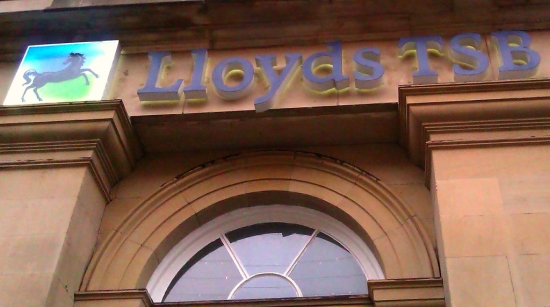Lloyds Banking Group has faced significant criticism in the past few years. Thanks to a large bailout by the taxpayer at the height of the financial crisis, the group is now 39 per cent state owned and has therefore been accused of “ignoring social responsibilities” by implementing a wide-scale branch closures policy which has, to date, cost thousands of workers their jobs.

However, while this scheme may not have proven popular, the group’s most recent results have indicated that it does indeed seem to be working.
In the six months to the end of June, Lloyds Banking Group managed to pull off a startling turn-around, posting profits of £2.1 billion for the first half. This compares extremely favourably with the same period in 2012 when losses of £456 million were recorded.
Furthermore, the bank has increased lending by 1 per cent, equating to £3 billion, during the first half. This step will surely mollify critics who claimed the bank withheld finances from small businesses and home owners, thus failing to deliver on promises to aid economic movement.
Chief executive Antonio Horta-Osorio believes that the steps taken during the period have strengthened public confidence in the bank.
He says; “We are now well on track to create a bank with a leading cost position, lower risk, a lower cost of equity, and products and services focused on our customers’ needs, to deliver strong, stable and sustainable returns to our shareholders.”
Yet while profits are certainly on the up, Lloyds still fully intends to continue with its current cost-cutting plan of international closures. The bank has made its intentions to focus on its core UK business perfectly clear, believing that the more stable economic situation in this country will yield the best results.
So far, Lloyds has cut its commercial property portfolio and even withdrawn entirely from 17 countries across the globe. In fact, by the end of next year, it hopes to have a physical presence in only 10 countries internationally.
The attention of many experts in the financial field has now turned to the repayment of the £20 billion taxpayer bailout. Regulators will be working with the bank in the coming months to assess the best way for the bank to resume paying dividends on its shares – which would allow the government to sell its substantial stake in the business.
However Chief Secretary to the Treasury, Danny Alexander, has firmly stated that the government will not be rushed in this sale as it wishes to ensure taxpayers are fully compensated for their assistance during the banking crisis.
He says; “The British taxpayer has invested billions of pounds in the banking system in order to rescue it from catastrophe, and we need to make sure that the taxpayers’ commitment is returned as we return these banks to the private sector.”
Do you think, in light of this profit margin, that Lloyds should cease UK branch closures which are contributing to unemployment and adding to high street vacancy rates?
Previous Post
Funding Boost for UK Tourist Attractions